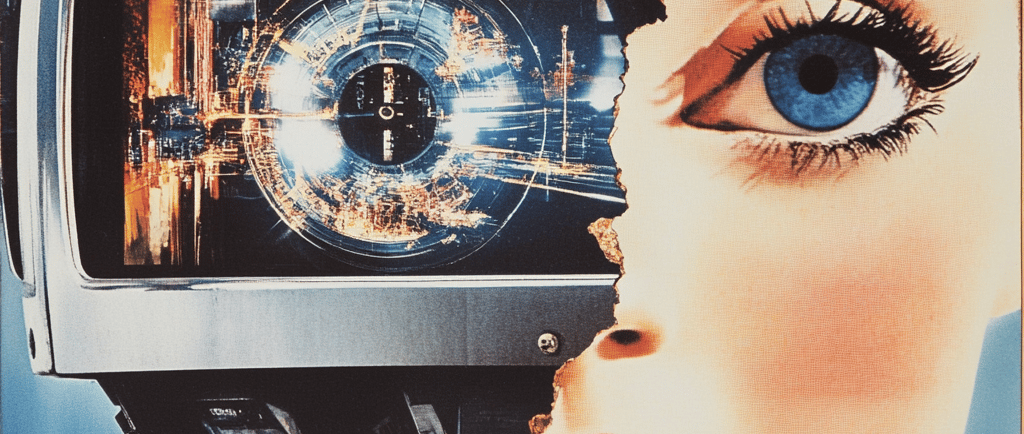AI-Conjured Hollywood Film
A fully AI-generated movie becomes a blockbuster hit.
TIMELINE


I was scrolling through my feeds when an article caught my eye: "AI-Conjured Film Breaks Box Office Records." At first, it seemed absurd, even a little bleak. A movie generated not by the creative minds we admire but by algorithms and data? As I let that sink in, I felt a strange blend of curiosity and apprehension flutter through me. How did we get here, and what does it mean for storytelling?
I care about this topic because film has been a significant part of my life. Growing up, movies provided not just entertainment but a window into the human experience. I remember times when a good film transported me to worlds unknown or offered insights into my own struggles. It’s incredible how a simple story shared on-screen can resonate, shape culture, and evoke deep emotions. The idea that we might accept a film entirely crafted by AI hits me with a sense of loss. What happens, then, to the soul of cinema?
In recent years, we’ve seen impressive advancements in AI technology that can create music, art, and even literature. So, the concept of an AI-generated movie doesn’t feel so far-fetched, does it? The anxiety lies in the potential consequences. Imagine algorithms combing through countless stories, images, and styles to whip up a blockbuster that checks every box: high drama, humor, and a love story wrapped in a pretty bow. The efficiency and precision could draw audiences in droves, but who really benefits? Does this mean we’re sacrificing the quirky imperfections and genuine expressions of storytellers for something that's just... efficient?
It makes me think about creativity itself. Is the heart of a film—its ability to connect, to inspire an audience—reduced to mere data points? The implications of relying on AI for such a deeply human endeavor feel profound. Sure, maybe a fully AI-generated film could achieve great commercial success, but will it ever resonate on the same emotional frequency? As more of our culture gets harnessed by algorithms, what does this say about our collective imagination? Are we in danger of becoming passive consumers, enthralled by spectacle rather than being challenged or moved?
On a personal level, I grapple with this technological shift. While I’m curious about the possibilities, I’m also worried about the creative room being squeezed out for genuine artists. Would I want my favorite stories told by machines devoid of the raw, messy human experience? Perhaps we could find a balance between AI's capabilities and human creativity—an exciting collaboration that retains the essence of storytelling while embracing innovation.
As I ponder all this, I can’t shake a thought: If the next hit movie isn’t born of human inspiration but rather silicon and code, will I still rush to the theater, or have I unwittingly given up my sense of wonder? Will we allow AI to script our narratives, or will we, in turn, script AI? The screen isn’t just a reflection of society; it tells the story of who we are and who we hope to become. And in a world increasingly crafted by algorithms, how do we ensure that our stories remain distinctly human?
